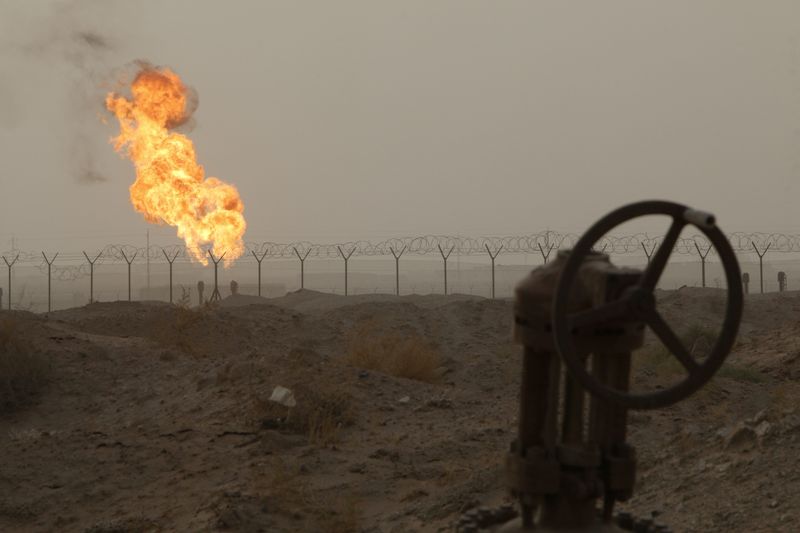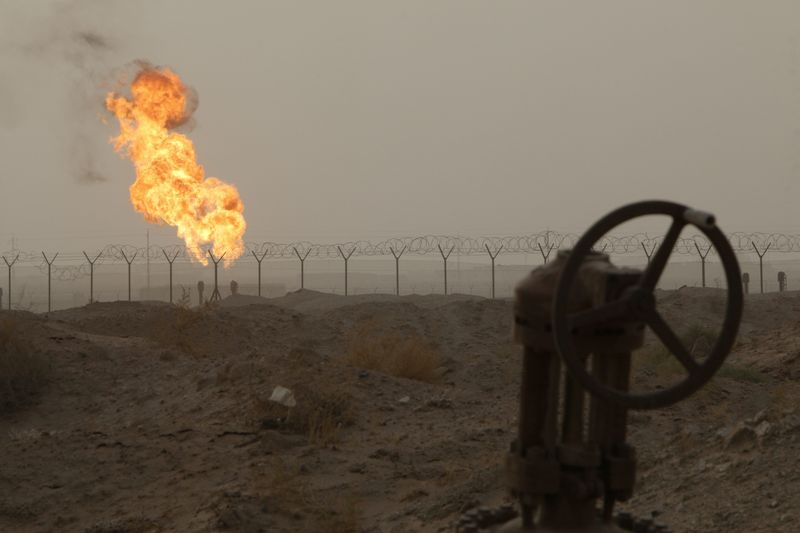
By Yuka Obayashi and Trixie Yap
(Reuters) -Oil prices rebounded by more than 1% on Tuesday, paring previous session’s losses, on supply concerns amid an escalating Middle East conflict, stronger U.S. services sector data and a cut in production at Libya’s Sharara oilfield.
Brent crude futures gained 97 cents, or 1.27%, to $77.27 a barrel by 0354 GMT, while U.S. West Texas Intermediate crude futures climbed $1.14, or 1.56%, to $74.08.
On Monday, both benchmarks fell about 1% against a backdrop of falling global stock markets.
Oil’s slide was limited by mounting concerns concerns that Iran, a key Middle Eastern producer, may retaliate against Israel and the U.S. for the assassination of a Hamas leader in Tehran and an Israeli attack that killed a Hezbollah commander in Lebanon, potentially leading to a wider regional war.
On Monday, at least five U.S. personnel were injured in an attack against a military base in Iraq, U.S. officials told Reuters. It was unclear whether the attack was linked to the retaliation threats.
“Oil seems to have clawed back some of its losses as broader concerns of a possible escalation in Middle Eastern conflict continue to add (to) apprehensions in (the) oil market. The possibility of an all-out war in (the) Middle east is getting real, threatening global supplies,” Priyanka Sachdeva, a senior market analsyt at Phillip Nova in Singapore, said in an email.
The U.S. has been urging countries to convey to Iran that escalation is not in its interest, a State Department spokesperson said on Monday.
Oil was also supported by overnight data showing services sector activity in the U.S., the world’s biggest oil consumer, rebounded from a four-year low in July.
Oil’s gains also occurred amid a broader rally in Asian equity markets after they plunged on Monday.
“Relief rallies in global market overnight also seemed to have repaired overall sore sentiments, sparking some fresh position taking in oil,” Phillip Nova’s Sachdeva said.

Concerns of lower production at Libya’s 210,000 barrel-per-day Sharara oil field also buoyed prices. Output at the field, one of the country’s largest, has fallen by around 20% due to ongoing protests.
These production troubles have offset some of the earlier macro bearishness in the market, said ING analysts in a client note.
This post is originally published on INVESTING.








